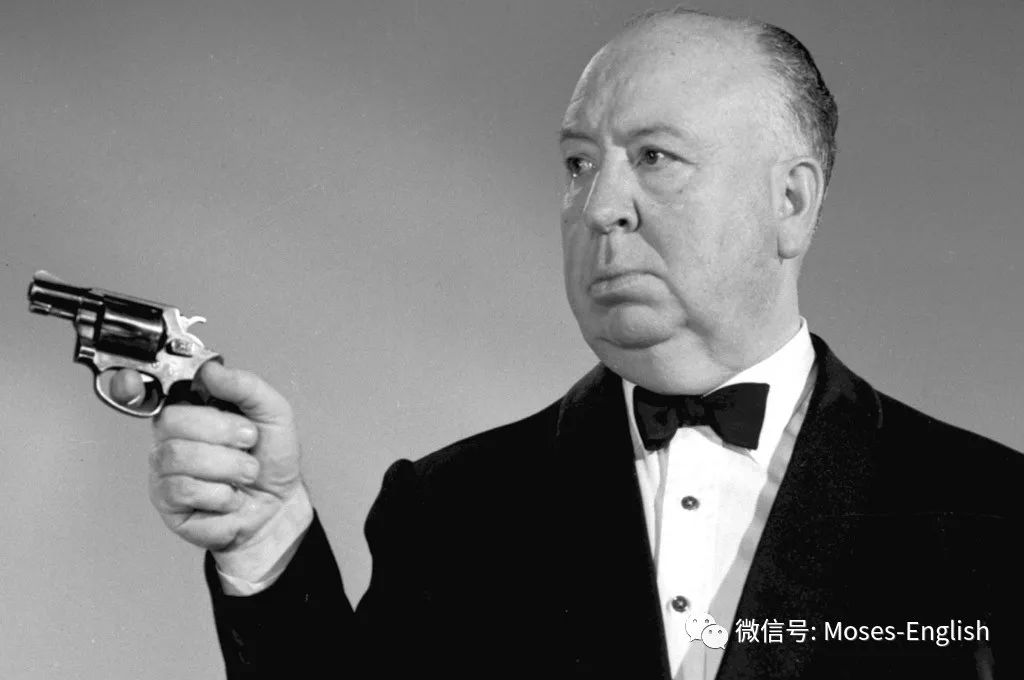
中英对照:合同的起草、结构与撰写注意事项
通常一份完整的合同在格式上除了前言、正文和约尾条款外,还要有标题。多数合同还会有一个封页,上面注明合同的名称、签约各方、签约的日期和地点。如果合同很长,条款又多,就需要在封页之后做一个目录,以便查询和阅读。这样的目录排列也有利于整理谈判的思路并研究谈判的要点。
今天就来看看合同的起草、结构与撰写注意事项吧!
|
Part 1 Name 第一部分 名称 |
Name of the Contract 合同名称 |
|
Part 2 Preamble 第二部分 前言
|
Background of the Contract 签约背景 |
|
Signature Place of the Contract 签约地点 |
|
|
Signature Date of the Contract 签约时间 |
|
|
Part 3 Main Body of the Contract 第三部分 主要条款和条件 |
1. Definition 定义 |
|
1.1 Definition 定义 |
|
|
1.2 Interpretation Principles 解释原则 |
|
|
2. Representation and Warrants 陈述与保证 |
|
|
2.1 Representation and Warrants 陈述与保证 |
|
|
2.2 Consequences of Misrepresentation 不实陈述的后果 |
|
3. Operative Terms and Conditions 具体权利义务条款 |
|
|
4. Term of Contract 有效期 |
|
|
4.1 Term 有效期 |
|
|
4.2 Extension 延期 |
|
|
5. Termination 终止 |
|
|
5.1 Termination 终止 |
|
|
5.2 Continuing Obligations 合同方持续的义务 |
|
|
6. Confientiality 保密 |
|
|
6.1 Scope of Confientiality 保密义务的范围 |
|
|
6.2 Exceptions 保密义务不适用的情形 |
|
6.3 Confidentiality Rules and Regulations 保密规则和法规 |
|
|
6.4 Return of Confidential Information 保密资料信息的返还 |
|
|
7. Breach of Contract 违约 |
|
|
7.1 Remedies for Breach of Contract 违约救济措施 |
|
|
7.2 Limitation on Liability 责任限制 |
|
|
8. Force Majeure 不可抗力 |
|
|
8.1 Definition of Force Majeure 不可抗力的定义 |
|
|
8.2 Consequences of Force Majeure 不可抗力的后果 |
|
|
9. Settlement of Disputes 争议的解决 |
|
|
9.1 Friendly Consultation 友好协商 |
|
9.2 Arbitration 仲裁 |
|
|
9.3 Continuing Rights and Obligations 持续的权利和义务 |
|
|
9.4 Enforcement of Award 仲裁的执行 |
|
|
9.5 Injunctive Relief 禁令救济 |
|
|
10. Applicable Law 适用的法律 |
|
|
11. Miscellaneous Provisions 其他规定 |
|
|
11.1 Independent Contractor Relationship 合同方之间的独立关系 |
|
|
11.2 Binding Effect 合同约束力范围 |
|
|
11.3 Party Entitled to Enforcement 合同权利人范围 |
|
|
11.4 Amandment 变更 |
|
11.5 No Publicity/Announcement 禁止对外发布 |
|
|
11.6 No Solicitation 禁止招揽对方雇员 |
|
|
11.7 Notices 通知 |
|
|
11.8 Waive 是否放弃权利 |
|
|
11.9 Assignability 转让 |
|
|
11.10 Severally 可分割线 |
|
|
11.11 Entire Agreement 全部协议 |
|
|
11.12 Counterparts 合同签约分数 |
|
|
11.13 Schedules and Annexes 附录及附件 |
|
|
11.14 Language 语言文本 |
|
Part 4 Final Clause 第四部分 签署(约尾) |
Execution 实施 |
合同的正文条款是合同的主干,是合同各方权利义务的集中体现。按照制式结构的条款顺序,合同的正文条款一般包含以下各项各条款:
条款一,定义Definition
条款二,陈述与保证 Representation and Warrants
条款三,具体权利和义务条款 Operative Terms and Conditions
条款四,有效期 Term of Contract
条款五,终止 Termination
条款六,保密 Confidentiality
条款七,违约 Breach of Contract
条款八,不可抗力 Force Majeure
条款九,争议的解决 Settlement of Disputes
条款十,适用的法律 Applicable Law
条款十一,其他规定 Miscellaneous Provisions
了更好地理解合同的结构,我们可以把合同中的条款分成三类:第一类,通用条款,也就是我们在几乎所有的合同中都可以见到的条款,如定义,合同变更,不可抗力,陈述与保证,纠纷解决以及违约条款等。第二类,常用条款,它的出现频率很高,如我们常见的税收条款和保险条款等。第三类,操作性条款,是根据合同本身具有的不同特性而设计出来的一些特定条款。如工程承包合同中才会出现的工程建造的时间表,即计划时间表。
美国律师James. Martin教你如何写合同(中英对照)——合同撰写注意事项
1. Title it "Contract." Do not leave this oneto chance. If your client wants a contract, call it a contract. A judge nowsitting on the federal bench once ruled that a document entitled"Proposal" was not a contract even though signed by both parties. The lesson learned is, "Say what you mean." If you intend the document tobe a legally binding contract, use the word "Contract" in the title.
1.标题上注明"合同"两字。不要为碰运气而不在标题上写“合同”二字。如果你的客户需要订立合同,文件上就要注明“合同”二字。一个现任联邦法院法官就曾经裁定:即使双方签字,但标有"建议书"的文件并非合同。这给我们的教训就是,要把你内心意思表达出来。如果你想让你的文件成为具有法律效力的合同,就要在标题中注明"合同"字样。
2. Write in short sentences. Short sentences are easier to understand than long ones.
2.写短句子,因为短句子比长句子更容易让人理解。
3. Write in active tense, rather than passive. Activetense sentences are shorter and use words more efficiently, and their meaningis more apparent. Example of active: "Sellers shall sell the Property to Buyer." Example of passive: "The Property shall be sold to Buyer by Seller."
3.用主动语态而不用被动语态。相对而言,主动语态的句子更简短,措词更精练,意思表达更明白。
例如,主动语态的例子:卖方将把此物卖给买方;
被动语态的句子:此物将被卖方卖给买方。
4. Don't use the word "biweekly." It has twomeanings: twice a week and every other week. The same applies to"bimonthly." Instead, write "every other week" or"twice a week."
4.不要用“双周”之类的词,因为这有可能产生歧义----是两周还是每隔一周?类似的词还有"双月",所以最好这样写:"两周"或"每隔一周"。
5. Don't say "Lessor" and "Lessee."These are bad nicknames for a lease because they are easily reversed ormistyped. Use "Landlord" and "Tenant" instead. The sameapplies to lienor and lienee, mortgagor and mortgagee, grantor and grantee,licensor and licensee, party A and party B. This is where you can use yourcreativity to come up with a different nickname for a party, as long as you useit consistently throughout the contract.
5.不要说“出租人”和“承租人”。这对一个租赁合同来说是些不好的别称,因为他们容易被颠倒或者出现打印错误。可以用“房东”和“房客”来代替他们。同样,在合同中也不要说留置权人和留置人,抵押权人和抵押人,保证人和被保证人,许可人和被许可人,当事人A和当事人B......到底怎么说,这就要看你驾驭语言的能力了,不过,要把握的一条原则,即在整个合同中,对合同一方只能用一个别称。
6. Watch out when using "herein." Does "wherever used herein" mean anywhere in the contract or anywhere in the paragraph? Clarify this ambiguity if it matters.
6.使用术语“此处(herein,也可译为”“在此”)时要当心。为了避免含糊不清,使用“此次”时最好特别申明一下“此处”是指整个合同,还是指其所在的某一段落。
7. Write numbers as both words and numerals: ten (10).This will reduce the chance for errors.
7.写数目时要文字和阿拉伯数字并用,如:拾(10)。这将减少一些不经意的错误。
8. When you write "including" consider adding"but not limited to." Unless you intend the list to be all-inclusive,you had better clarify your intent that it is merely an example.
8.如果你想用"包括"这个词,就要考虑在其后加上"但不限于....."的分句。除非你能够列出所有被包括的项,否则最好用"但不限于...."的分句,来说明你只是想举个例子。
9. Don't rely on the rules of grammar. The rules ofgrammar that you learned in school are not universal. The judge or juryinterpreting the meaning of your contract may have learned different rules.Write the contract so that no matter what rules they learned, the contract isclear and unambiguous. Follow this test for clear writing: Remove all periods and commas, then read it. Choosing the right words and placing them in theright place makes the writing clear without punctuation.
9.不要依赖于语法规则。那些你在学校里得到的语法规则并不是放之四海而皆准的东西,因为有权力来解释此合同的法官或陪审团成员学的语法规则可能和你学的不一样。
但不管学的是什么规则,撰写合同都要遵循一个基本原则:简洁、明确。检测你写的东西是否达到这个要求有个好办法,那就是去掉所有的句号和逗号,然后去读它。在没有标点符号的情况下,选择正确的词语放在正确的位置上,这将使你写出来的东西更简明,更流畅。
10. Don't be creative with words. Contract writing is notcreative writing and is not meant to provoke reflective thoughts orcontroversies about nuances of meaning. Contract writing is clear, direct andprecise. Therefore, use common words and common meanings. Write for the commonman and the common woman.
10.不要创造词语。合同文书不是创造性的作品,也就不能因为意思的细微差别而引起思考或争论。合同文书应该是清晰、直接而准确的。因此,要使用普通的词语,表达普通的意思,为普通人撰写合同。
11. Be consistent in using words. If you refer to thesubject matter of a sales contract as "goods" use that termthroughout the contract; do not alternately call them "goods" and"items." Maintaining consistency is more important than avoidingrepetition. Don't worry about putting the reader to sleep; worry about theopposing lawyer a year from now hunting for ambiguities to get your contractinto court.
11.用词一致。在一份销售合同中,如果你想用“货物”来指整个合同的标的物,就不要时而称它们为“货物”,时而又改称它们为“产品”。保持用词一致性比避免重复更加重要。不要担心这会让读者打瞌睡;你应该提防的是对方律师会因为含糊不清的合同而将你告上法庭。
12. Be consistent in grammar and punctuation. The rules ofgrammar and punctuation you learned may differ from others, but you had betterbe consistent in your use of them. Be aware of such things as where you putending quote marks, whether you place commas after years and states, andsimilar variations in style.
12.在文法和标点符号上保持一致。你可能学过许多不同类的文法和标点符号规则,但在使用它们时最好保持一致。要特别注意句末的引号、时间和地点之后的逗号以及文风的相似性。
本文整理自网络,希望法律英语或翻译的小伙伴,可以参加我们组织的讲座:推开法律笔译之门;系统课:法律笔译实训课,点击蓝字链接即可了解,或直接添加微信yixiaojiang1.




